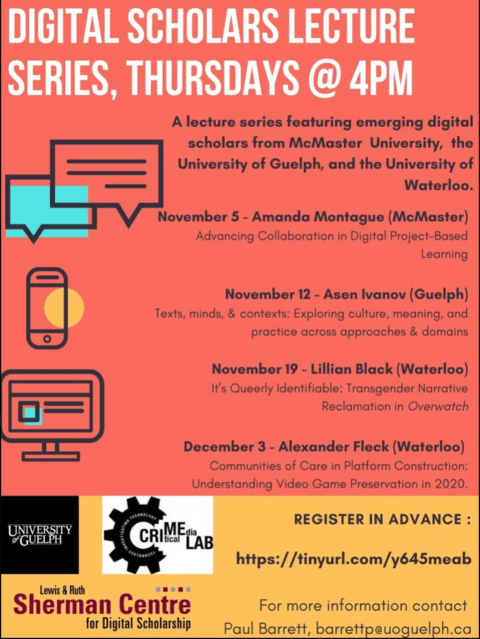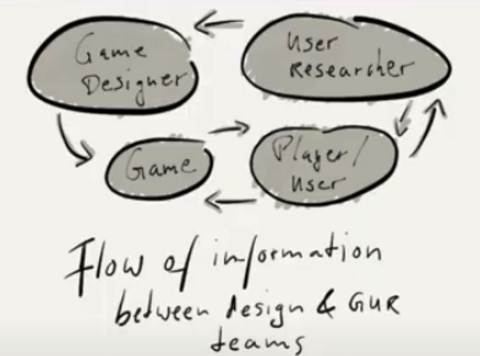Lillian A. Black gives a talk for the Digital Scholars Lecture Series (Nov. 19)
Coming up November 19th, Lillian A. Black, English graduate researcher, presents "It's Queerly Identifiable: Transgender Narrative Reclamation in Overwatch" for the Digital Scholar Lecture Series.
The Digital Scholar Lecture Series features emerging digital scholars from McMaster University, the University of Guelph and the University of Waterloo.

